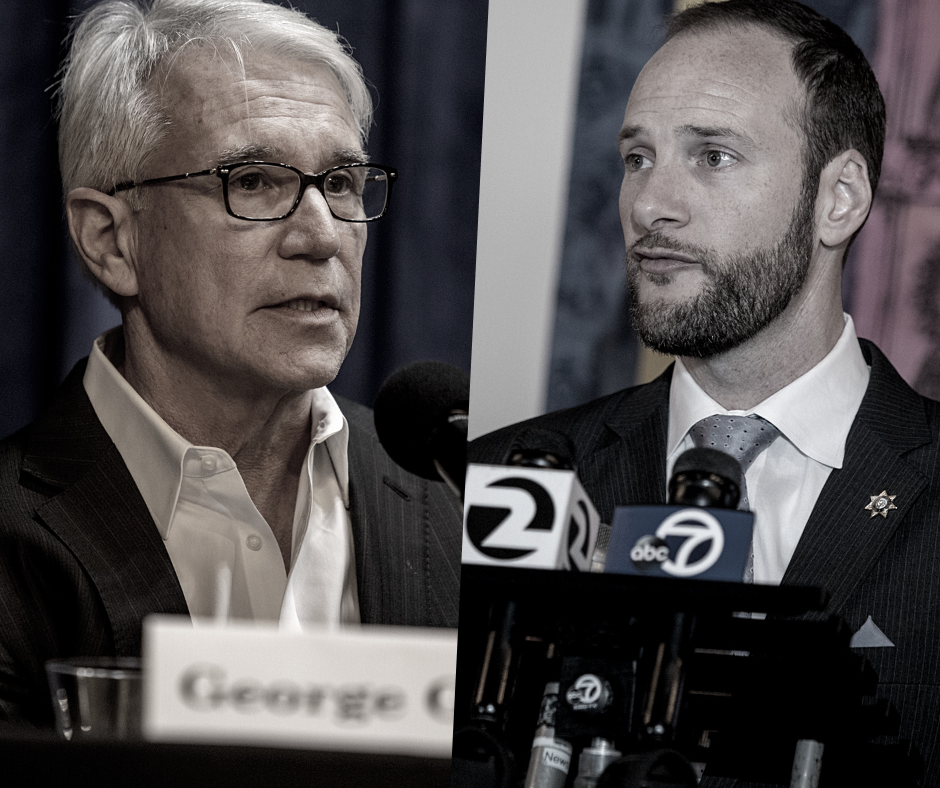

By Paige Laver
SAN FRANCISCO, CA – District Attorneys Chesa Boudin in San Francisco and George Gascón in Los Angeles discussed the unfolding crime rates throughout California and the best ways to stop it with Reason Magazine this week.
LA DA George Gascón and SF DA Chesa Boudin are now starting to create a new narrative for the ways society should perceive crime, as well as the ways to deter it by finding alternatives to incarcerating individuals who have committed nonviolent crimes, and also by ensuring the safety of their communities.
To understand the history of crime, and the aftermath of how crime is handled it is important to acknowledge the history of the War on Drugs, they argue, noting that in 1960, the violent crime rate in the United States was rising, particularly due to the War on Drugs which was declared by President Nixon in June 1971.
This “war” was a symbol of poverty, political dissent, classism, and social upheaval.
By the early 1990s crime decreased seven percent and incarceration rates specifically on the War on Drugs were increasing, and unfortunately not much progress has been made, as the U.S. prison system is currently experiencing what can be considered mass incarceration.
Reason Magazine claims that “as a society there needs to be a distinguishing factor between criminal justice reform and failing to enforce the law.”
Although this could be true, for many individuals incarceration is a root cause of social disadvantage that they can’t run from. The social experience and effects of incarceration and re-entry are racialized experiences advocated by both Gascón and Boudin.
Boudin spent a majority of his time navigating the pandemic as a DA, believing there are better solutions than incarcerating nonviolent individuals.
Although arson has spiked throughout San Francisco, the overall crime is down by 32 percent from this time last year, according to SF Chronicle.
Gascón , a former police officer and DA of San Francisco and now the DA of Los Angeles, is on a similar route to Chesa Boudin, and believes that “ tough on crime” laws are a direct result of California’s prison populations and racial disparities that have torn families apart.
In fact, Gascón said that “prosecution is leading to more insecurity.”
Because of this, Gascón is releasing more than 20,000 low risk and non-violent offenders. He said he found that many people incarcerated are the same people who have lower income and can’t afford to pay bail.
“There seems to be no connection to how much money is in your bank account and whether you are dangerous or not,” Gascón reported to Reason Magazine.
During his time of being a DA he has stayed away from prosecuting low risk crimes, including sex work.
Gascón said he understands that LA county is a place that uses the most expensive and most intrusive tools of the criminal legal system to deal with every behavior that occurs, and their solution is prosecution and incarceration, which hasn’t been shown to deter crime.
In the criminal legal system, 80 percent are misdemeanors, and the most common misdemeanor crimes such as DUI’s, shoplifting, and sex work are committed by the people who are most commonly imprisoned and 3.2 percent of homicides make up the prison population, according to the Federal Bureau of Prisons.
Under Jackie Lacey, who was the former DA of Los Angeles, LA county sent more people to prison per capita than 56 of California’s 58 counties, and violent crime increased by 25 percent, according to the LA Times.
In addition, LA’s homeless population has been a political and social issue of discussion in recent decades.
The population grew 49.34 percent between 2013 and 2019 and crimes committed by gang members continue to be prosecuted even without enhancements, where murder carries a life sentence.
For many, Gascón said, gang activity is a direct result of poverty and social class, where people found their community through personal, financial, and social struggles they endured, to give them a life sentence is cruel due to the situations that were brought upon them.
Gascón has been criticized for his new vision on taking on LA’s gangs, where his policies are directed at diversion programs, not punishment.
According to Reason Magazine, studies have shown that increasing the severity of punishment does little to deter crime, which is why Gascón is using diversion programs for treatment.
DA Gascón said, “sending an individual convicted of a crime isn’t an effective way to deter crime,” but finding alternatives and ways to protect the communities through treatment and outreach programs by bringing communities closer is a better method.
“Broad systematic change is needed for safety and justice,” Gascón stated, quoting studies have shown that mental illness and poverty are a leading factor to incarceration which outreach programs and treatment can provide safety and a community for many people who are struggling.
Both Los Angeles and San Francisco are seeing Boudin and Gascón in leadership positions that are implementing a better society by understanding people’s upbringing and knowing how addiction and mental illness plays a major role in incarceration.
They believe their role in being DAs is making a difference in not only deterring crime, but changing the narrative for others around them, by allowing people to see that there are other factors that make people commit crime, and there are better ways to treat these individuals than through the cycle of incarceration.

To sign up for our new newsletter – Everyday Injustice – https://tinyurl.com/yyultcf9
Support our work – to become a sustaining at $5 – $10- $25 per month hit the link:





